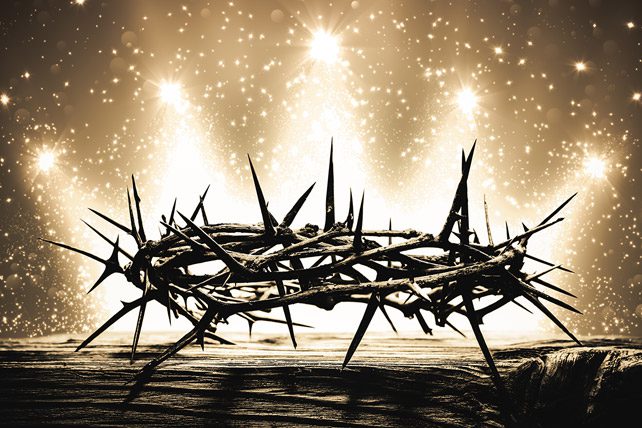It just hangs there. It dangles as if it were simply an afterthought attached to the second chapter of Genesis. But we know there are no afterthoughts in the mind and inspiration of the Holy Ghost. Thus, we look at this passage to give us a clue about our condition prior to the misery of sin. Genesis 2:25, reads, “They were both naked, the man and his wife, and were not ashamed” (NKJV). This tells us that before sin came into the world, there was no shame. There was no embarrassment. The experience of humiliation was completely unknown and foreign to the human race.
However, along with the first experience of sin came the awful burden of the weight of personal shame and embarrassment. Shame and embarrassment are feelings and experiences that occur to us in various degrees. The worst kind of shame, the most dreadful form of embarrassment, is that which results in utter and complete humiliation. Humiliation brings with it not merely the reddened face of embarrassment but also the sense of despair as we lose our dignity and our reputations are cast into ruin.
Yet it was precisely into this domain of shame and humiliation that our Savior came voluntarily in the incarnation. The popular hymn, “Ivory Palaces,” depicts this descent from glory—the Son of Man’s voluntary departure from the ivory palace that is His eternal dwelling place. He chose willingly to make Himself of no reputation, to become a man and a servant, obedient even unto death. It is this humiliation that Christ willingly accepted for Himself, which stands at the beginning of the entire progress that He travels on His road to glory and to His final exaltation. The progress, as the New Testament traces it, is one that moves from humiliation in the birth of Jesus to His exaltation in His resurrection, ascension, and return.
The quality of exaltation is the exact opposite, a strong antithesis, to the quality of humiliation. In exaltation, dignity is not only restored, but it is crowned with the glory that only God can bestow. And so when we look at the biblical theme of the exaltation of Jesus, we look at the way in which the Father rewards His Son and declares His glory to the whole creation.
We are told that no one ascends into heaven except the One who descends from heaven, and we are also told that in baptism, we are given the mark and the sign of our participation with Jesus in both His humiliation and His exaltation. The promise of participating in the exaltation of Christ is given to every believer—but there is a catch. There is a warning, and that warning is clear: unless we are willing to participate in the humiliation of Jesus, we would have no reason to expect ever to participate in His exaltation. But that is the crown that is set before us, that we, who have no right to everlasting glory and honor, will nevertheless receive it because of what has been achieved in our stead by our perfect Redeemer.
In 1990, I wrote a book titled The Glory of Christ. The writing of that book was one of the most thrilling experiences I’ve ever had in writing. My task on that occasion was to demonstrate that while there is a general progression from humiliation to exaltation in the life and ministry of Jesus, this progression does not run in an unbroken line that moves uninterrupted from humiliation to exaltation. Rather, the book explains that even in Jesus’ general progress from humiliation to exaltation, in His worst moments of humiliation, there are interjections by the grace of God, wherein the Son’s glory is also manifest.
For example, when we consider the nativity of Jesus, it is easy to focus our attention on the sheer impoverishment that went with His being born in a stable and in a place where He was unwelcome in the resident hotel or inn. There was an overwhelming sense of debasement in the lowliness of His birth. Yet, at the very moment that our Lord entered humanity in these debasing circumstances, just a short distance away the heavens broke out with the glory of God shining before the eyes of the shepherds with the announcement of His birth as the King.

